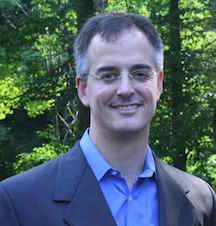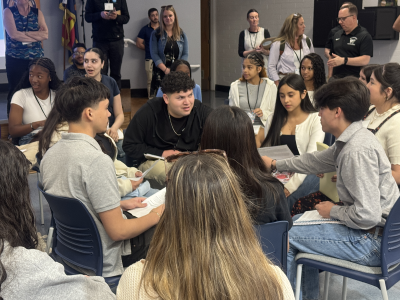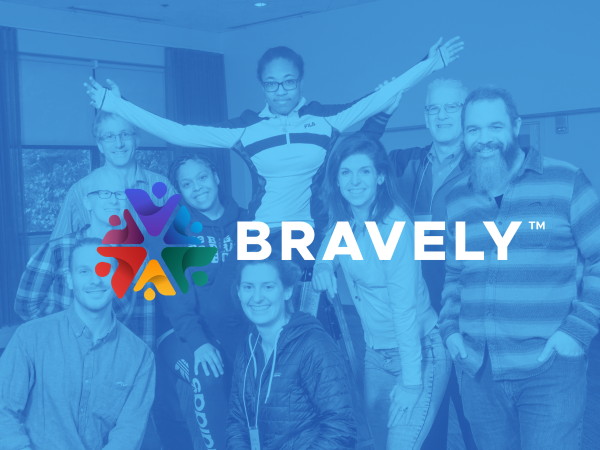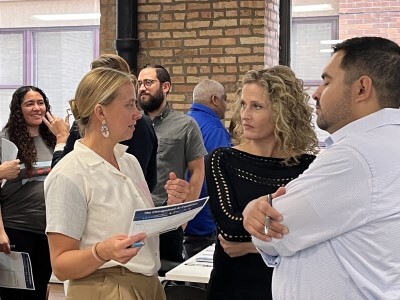Professional Learning
How Do We Make Maker Educators?
Topics
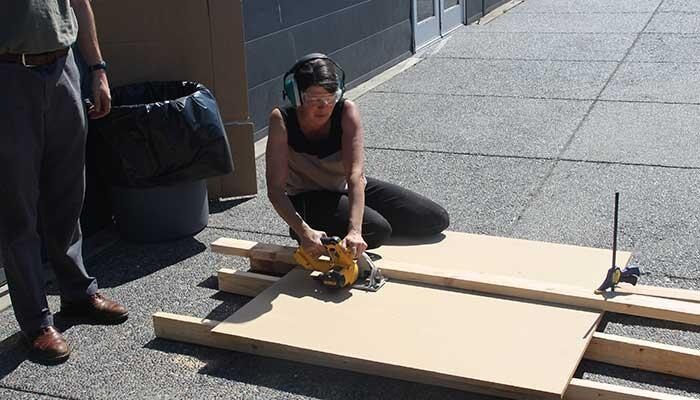
Educators are the lead learners in schools. If they are to enable powerful, authentic, deep learning among their students, they need to live that kind of learning and professional culture themselves. When everyone is part of that experiential through-line, that’s when next generation learning thrives.
Many educators don't identify as makers, but they should. Here's why, with a few simple strategies to help teachers adopt a maker mindset.
The perception of making in popular culture is closely tied to the notion that you need to be a “techie,” or have an Arduino in your hand to gain entrance to the “Maker Faire.” As a result, many educators don’t identify themselves as makers—and teaching children to be makers is nearly impossible when you don’t consider yourself one.
After consulting with dozens of schools over the past two years, what I’ve realized is that it’s not adequate resources, available space, or concerns about liability that’s keeping making out of the classroom. The biggest hurdle to implementing maker-centered learning is that teachers don't feel prepared to do this kind of teaching. They simply don’t consider themselves to be makers. In this series of articles, you’ll learn a) why this self-perception is, in fact, mostly way off the mark; and b) how we can prepare teachers to implement maker-centered learning in classrooms.
Why Making Matters
I love Arduino, Raspberry Pi and all the other platforms that are introducing a whole new generation of kids to “electronic hobby kits.” However, making is so much more than computer programming. It’s a mindset, an outlook on life. The essence of being a maker is viewing the world as a malleable place that can be shaped, and having the confidence and competence to shape it.
For educators to lead schools and classrooms of makers, they must adopt a maker mindset themselves. Steve Jobs, “head maker” at Apple for a number of years, sums up this perspective beautifully:
Everything around you that you call life was made up by people that were no smarter than you; and you can change it, you can influence it, you can build your own things that other people can use. Once you learn that, you'll never be the same again.
Having a maker mindset means believing that you can shape the world around you—that you can make it better. For our children to succeed in a future in which many jobs will be replaced by machines, they will need to be adept at more creative and productive roles. They’ll need to be confident in their creative abilities and the process of creation itself.
Making makes you a better person simply by reorienting you toward your very human nature. For eons we’ve built things, tried, failed, and learned along the way. That’s what has driven humanity in the past, and that’s what will continue to do so in the future. Shaping our children’s perspective in this sense is vital to our progress as a society.
Teachers Becoming Makers
As excited as I am about the possibilities for the future of making in the classroom, there’s quite a bit of practical work that needs to be done to get there.
As it turns out, for someone to identify themselves as a maker, the first step is pretty simple—they need “make” something. We’ve tested this a number of times from larger projects to smaller scale activities, and it’s amazing how the educators who participate follow the same pattern of discovery.
Here’s one simple project that can kickstart the shift: build a robust flashlight using a found object as a case. We provide a battery, wires, LED and switch. The flashlight can be created by holding components together, but educators quickly realize that making it “robust” requires soldering. This means doing something new, dangerous (sort of) and creating an artifact that will be viewed publicly.
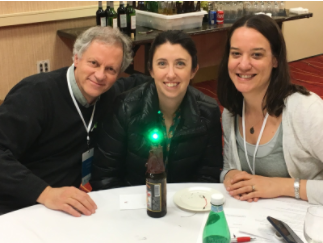
What I’ve found is that teachers, administrators, and ultimately their students quickly reorient themselves to the process of making: discovery, testing, learning, doing, failing, and succeeding in their projects, while gaining deep experiential knowledge along the way.
The maker mindset is easy to impart. The difficult challenge we face is providing more opportunities for educators to engage in workshops and identify themselves as makers. The reward is that these teachers and, in turn, their students will have the confidence that they can make a positive change in the world, and the resilience to make a difference despite setbacks and failures along the way.
In the next few articles, I’ll describe day 1 of the Maker Fellow Program, Oakland Unified’s effort to create the space for teachers to identify themselves as makers, understand the relevance of these skills in today’s worlds and develop a plan for making in their classrooms.

Related Posts
- Students Design, Tinker, Create and Discover through Maker-based Learning - Where do interested teachers go to deepen their understanding and appreciation for developing a maker mindset? The Maker Fellow program in Oakland is one place.
- 5 Best Practices For Reimagining Professional Learning This Year - How do we position aspiring next gen educators to be successful? Mirror next gen learning for students, position educators as agents of change, and enable educators to direct their learning.
- Teacher PD: The Achilles Heel of Personalized, Next Gen Learning - How will thousands of teachers re-engineer their skills to succeed in next gen classrooms? Good question. We’re working on answers.

